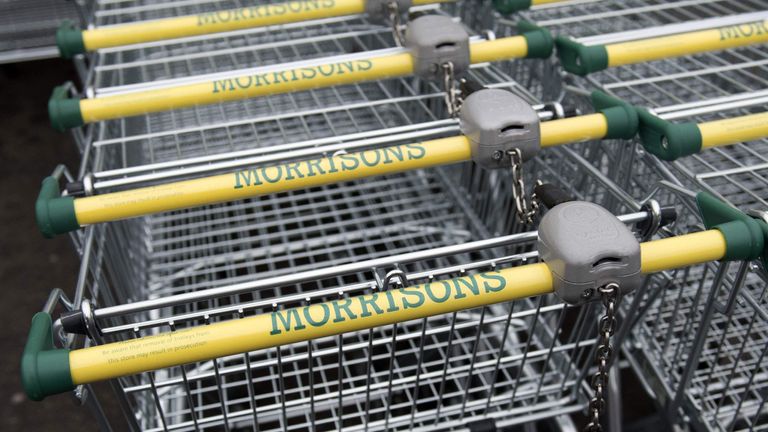Small firms have ‘no resources’ for no-deal Brexit planning
Small businesses are resigned to whatever happens with Brexit as they do not have the resources to plan for a no-deal scenario, according to the Federation of Small Businesses.
The organisation has told Sky News that many are finding it impossible to made decisions ahead of a week’s time when the UK could be leaving the EU if the prime minister’s efforts to agree an extension to the current 29 March deadline fail.
Alan Soady, from the FSB, said: “A lot of small businesses don’t have the kind of resources, and specialist teams to do contingency planning.
“They don’t have the money or expertise. That’s why many have found it so difficult to plan, and prepare for the possibility of an unplanned no deal.
“For the ‘Just in Time’ sectors, like florists, where stockpiling isn’t relevant, it’s making it really hard to plan.”
At Sandy’s fishmongers in Twickenham, south west London, owner Stuart Sandy said it is a worrying time for the business as it relies on daily deliveries -many from Europe.
“Stockpiling just isn’t an option for us, we need the continuation of supply and if there’s disruption then we are in trouble,” he said.
“We are in the hands of the gods. We are trying to stockpile some frozen stocks but the fresh produce, that is out of our control.”
Mr Sandy said he has tried to get answers from his suppliers and wholesalers but they have no answers either.
He added: “Nobody can predict what is going to happen.
“The government always says small businesses are the backbone of the UK economy but that backbone needs more support.
“It’s OK when you know the problem and can work around it logistically. If you don’t know what the problem is, it’s like being asked to put together a puzzle that is plain white.
“We don’t know what picture we are producing.”
The continued uncertainty surrounding Brexit and the possibility of leaving the EU without a deal is also impacting consumer behaviour.
Research carried out by Global Data, a leading analytics company, shows 10% of people are stockpiling goods and a further 15% intend to do so.
:: Morrisons sees signs of stockpiling by shoppers
Research Director at Global Data, Patrick O’Brien said: “It’s that whole level of uncertainty with consumers, they don’t know about what’s happening and when.
“Around 10% of consumers say they’ve done some level of stockpiling and we found two things driving this – one is concern about price rises and the other is availability in stores.
“But it is rising prices that is the more dominant of the two at the moment.”
Among the items people are reportedly stockpiling is toilet roll, as most is imported into the UK, and also dried and tinned goods.
“In the most extreme cases shoppers are buying bottled water in bulk in the worry that chemicals used to treat water won’t be available.
There have been warnings, including from leading economists, against panic buying.
Former Bank of England deputy governor Sir Charlie Bean, who is now a committee member at the Office for Budget Responsibility, told MPs this week it would be this behaviour and not Brexit that could lead to food shortages.
He said: “It’s like a bank run. It makes things worse as everybody is trying to stockpile the commodities because they think they might run out and it’s that which creates the shortages.
“That is a scenario that might quite legitimately kick in because people think there’s a cliff edge around the corner.”
Source: Read Full Article





